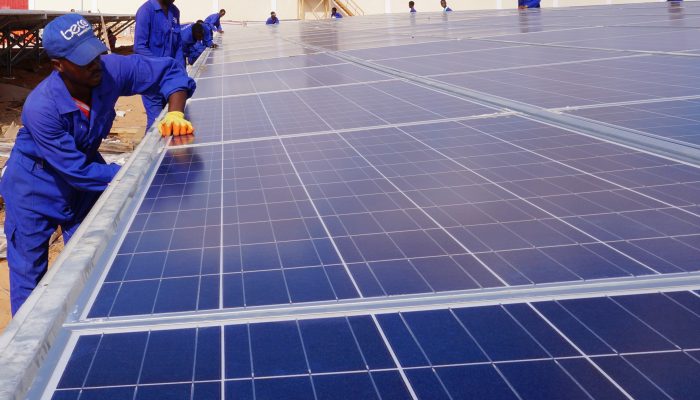- BECO has commissioned a 8MW solar PV plant in Mogato, Mogadishu, Somalia.
- BECO is the largest electricity supplier in Somalia covering Benadir, lower Shabelle, middle Shabelle and Galgadud regions which includes the capital city of Mogadishu.
- The company plans to increase the capacity of the plant to 100 MW by 2022.
The new solar plant aims to reduce the current dependency of BECO’s operational fossil fuel generator plants that power the city. BECO runs a fleet of diesel powered generators in the city.BECO which also transmits and distributes power to Kismayu, Barawe, Marka, Balad, Jowhar, Afgooye, Elasha and Mogadishu, said the additional solar power in its mix had already reduced electricity costs to $0.36 per kilowatt hour from $0.49 per kilowatt hour.
However, the company sees the need to further diversify into battery storage. “Unless we have batteries to store electricity, we can’t stop using fossil fuels, and the cost per kilowatt-hour when we get to 100 MWp will still depend on batteries,” says Beco’s chief engineer Mohamud Farah.
The solar plant also increases the installed capacity of the capital Mogadishu. Beco’s facilities provide a total of 35 MW, compared to an estimated demand of 200 MW. Somalia does not have a national electricity grid. It collapsed along with the government at the start of the civil war in 1991. With the timid return of peace to the country, electricity supply is provided by private companies.
The United States Agency for International Development (USAID) records that Somalia has an installed capacity of about 106 MW, and most power companies to date rely on diesel generators for electricity generation. Read more
According to the World Bank’s 2018 report, only 36% of the population has access to electricity in Somalia
Author: Bryan Groenendaal















